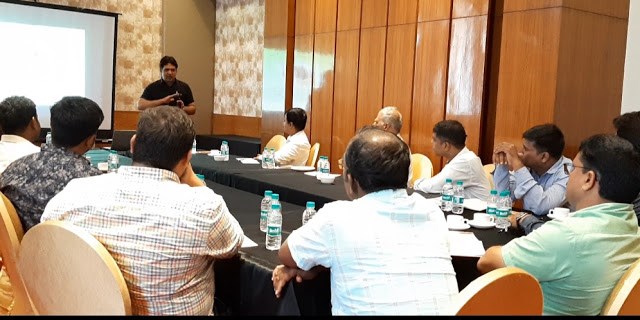
Explore a dedicated professional trip where you have a tea expert Mukesh bishnoi with you, someone who has extensive knowledge and background related to the tea industry. We are gurus in tea and provide assistance by tailored consultancy services irrespective of your years of experience as a tea enthusiast, a tea beginner or even a tea entrepreneur whose goal it is to transform your business, opening up new strategies and opportunities. Personal Consultancy For Tea Business: Elevate Your Business with Mukesh Bishnoi
Consultancy Overview:
Mukesh Bishnoi’s consultancy is meant to channel services that are individualized and come with expert advice, as well as actionable steps for tea sector’s individual or institution’s strategic requirements. These would be a combination of the one-on-one consultations, mentoring sessions, and personalized recommendations that will help you in this way that you will gain valuable insights and practical solutions to help you overcome the difficulties, use the available opportunities, and raise your business to a higher level.
Business Planning and Strategy:
Creation of a unique business plan which fits the unique character of your tea business can also be a very good avenue to achieve your objectives faster and easily.
Plan out the entry into the market, competition, brand building, pricing, distribution networks, and expansion methods together.
Define the growing opportunities for the tea market, identify its trends and look out for upcoming niches.
Product Development and Innovation:
Through product diversification, new tea blends, and flavor profiles does the company try to attract new customers. Besides, the company innovates when it comes to the package respectful, and the value-added oriented positioning.
Design similar to product, survey customers’ thoughts and ask them to taste the product to verify the new product ideas and wishes.
With green merging, natural certification, and morality in mind while manufacturing products.
Marketing and Branding:
Be successful at creating your own brand identity, your own brand storytelling narrative, and your own visual identity which will be your audience will respond.
Develop the integrated advertising campaigns, digital strategies, Facebook, Instagram, interaction programs and collaborations with the partners.
Apply marketing measurement, customer reaction and trends identification to improve the brand positioning and communication.
Operations and Supply Chain Management: Operations and Supply Chain Management:
Simplify operations, inventory handling, quality checks, and supply chain management to that they may minimize waste and save costs.
Adopt best practices in tea farming, processing, packing, and supply chain for consistent product quality and consistency.
The key is to strike the right balance between: resource allocation; building up and maintaining vendor relationships; and creating well-designed production flows.
Customer Experience and Engagement:
Help make customers satisfied, loyal, or be retained by delivering personalized experiences, excellent customer services, and loyalty programs.
Tap into customer feedback, reviews and data analytics activities to find out customers’ preferences, behavior patterns, current trends in the market, and lifestyle behaviors, among many others.
Build customer engagement programs, educational content, and communal experiences which will lead to the creation of loyal brand ambassadors.
Sustainability and Social Responsibility:
Emphasize the use of sustainability and earth-friendly practices, fair trade partnerships, and community development through your tea business.
adhere to industry standards and ethics by obtaining their certifications and attaining them to prove the company’s standing with environmental protection and social impact.
Educate consumers, shareholders, and employees about the sustainability actions and their cohesion towards the betterment of the community.
Consultancy Process:
Initial Consultation: Schedule an initial consultation to review your tea business ambitions, obstacles together with wanting more, so as to move in the right direction towards your goals.
Needs Assessment: Do a 360 needs analysis to establish crucial spheres that require evaluations and upgrading.
Actionable Recommendations: Get specially selected, assigned to you purposefully recommendations, plans in action, and strategies according to your chosen goal and objectives.
Implementation Support: Acquire ongoing aid, advice and continuation consultations to make sure a faithful adaption of the suggested strategies.
Monitoring and Evaluation: Track progress, calculate results, and improve policy based on output indicators, market feedback, and performance optimization.
Conclusion:
Unleash the potential of your tea business with a specially tailored advisory service from By Steve Shwe, a reliable tea start-up founder and industry expert. Based on the nature of your current business, whether you are looking for strategic advice, operation optimization, marketing expertise, or sustainability support to cope with the high competitiveness in tea business, Mukesh Basnoi’s consultancy services provide a road map to success and growth. Delegate your tea business to a tea industry leader and let him/her help you to set up and reach your goal with personalized consultation.
Do you prefer sitting for a personal consultancy session with Mukesh Bishnoi or if you want to talk about some more detailed and specific queries related to consultancy?
Book Your Personal Consultancy With Mr. Mukesh Bishnoi Founder & C.E.O. Of Zircon Tea Company.
Our Tea Business Channel is Zircon Tea Blogs
Contact no is +91-9499347308





